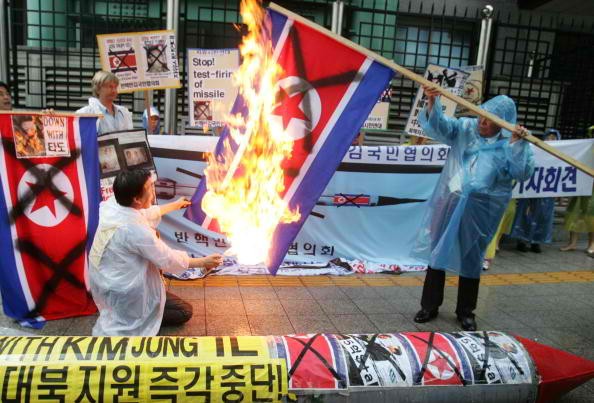A ballistic missile, the Pukguksong-2, which flew for about 500 kilometers and splashed in the sea between the Korean peninsula and Japan.
The missile was fired on Sunday despite the United Nations ban on nuclear weapons testing. The launch was done at the same time as Japanese Prime Minister Shinzo Abe visited U.S. President Donald Trump in Washington.
China was first to react to the nuclear activity. Geng Shuang, a spokesman for China's foreign ministry, said that China opposed the launch.
U.S. President Trump then blamed China for not giving stronger pressure to Pyongyang. China was accused of not persuading North Korea to end nuclear weapons testing.
However, Geng said that the issue is between North Korea, South Korea, and the U.S.
"The root cause of the (North Korean) nuclear missile issue is its differences with the U.S. and South Korea," he said.
The spokesperson said that China has been implementing the resolutions of the U.N. Security Council.
He added, "Beijing has been striving for a settlement of the Korean Peninsula issue by proactively engaging in mediation and promoting peace talks."
China is slowly tightening trade with North Korea and slowly increasing restrictions. The number of exports has decreased in the past year.
A specialist on Korean studies thinks that the North Korean strategy was done in timing with the U.S.'s non-position on the relations with Pyongyang.
According to Shi Yuanhua, a Korean studies professor at Shanghai's Fudan University, China is not in the position to change North Korea's position. Shi suggested that the U.S. should respond to the issue.
He said, "The key to solving the problem lies in the hands of the United States. If the United States is willing to sit and talk with North Korea, China will be happy to promote it."
Both Russia and Japan have expressed opposition to the North Korean missile testing.



























